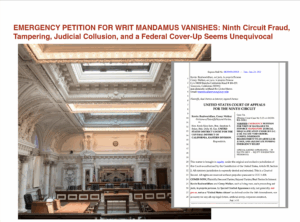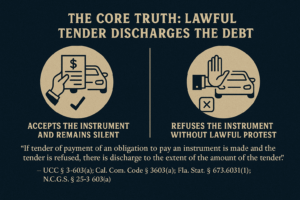The Sixth Amendment to the United States Constitution guarantees crucial rights to individuals accused of crimes, including the right to a speedy and public trial, the right to be informed of the nature and cause of the accusation, the right to confront witnesses, and the right to counsel. This amendment is a cornerstone of the American criminal justice system, ensuring fairness and transparency in legal proceedings. In this article, we’ll explore and compare two fundamental concepts mentioned in the Sixth Amendment: the “nature of an action” and the “cause of an action,” particularly in the context of the only two (2) types of criminal jurisdictions court can try an action under, it implicitly acknowledges: (1) Colorable-Admiralty Maritime Law and (2) Common Law.
“Nature” of an Action
The “nature of an action” refers to the fundamental character or type of legal dispute or proceeding at hand. It encompasses the legal principles that govern the case and the jurisdiction in which the case falls. In the context of the Sixth Amendment, understanding the nature of an action involves identifying whether the case is criminal or civil (tried under civil or criminal law?).
Only Two (2) Criminal Jurisdictions Granted by the Constitution:
1. Common Law
2. Colorable Admiralty (or Maritime)
The Constitution only grants the courts two (2) different criminal jurisdictions: One is a criminal jurisdiction under a Common Law, and the other is a criminal action that constitutes a condition of contract under the criminal aspects of a colorable (not authentic, but it looks like it is real) Admiralty jurisdiction.
Each American has the right to know which of these two (2) jurisdictions any court intends to try the respective criminal action under.
The distinction between these two types of law is crucial because it affects the procedures, rights, and remedies available to the parties involved. By identifying the nature of an action, the legal system ensures that the case is tried under the appropriate set of laws and procedures, and not under some made up and/or non-existent and/or unconstitutional law.
Colorable-Admiralty (or Maritime) Law vs. Common Law in the Sixth Amendment Context
The Constitution’s reference to granting criminal jurisdiction in either admiralty maritime) common law contexts underscores the legal system’s complexity and specificity. While colorable-admiralty law cases involve specialized knowledge and rules, common law cases rely on a broader body of precedents and judicial opinions. The Sixth Amendment ensures that regardless of the nature and cause of an action, individuals accused of crimes are afforded their fundamental rights to a fair trial and due process.
Common law:
- involved an injured party.
Colorable-Admiralty (or Maritime):
- requires a criminal action that constitutes a condition of contract under the criminal aspects of a colorable (not authentic, but it looks like it is real) Admiralty jurisdiction.
Conclusion
The distinctions between the nature and cause of an action are foundational to understanding how the Sixth Amendment operates within the broader American legal system. These concepts ensure that legal proceedings are conducted fairly, with respect for the specific characteristics of each case and the rights of the accused. By delineating cases into admiralty or common law jurisdictions, the Constitution provides a structured framework within which the principles of justice and due process can be applied effectively.




